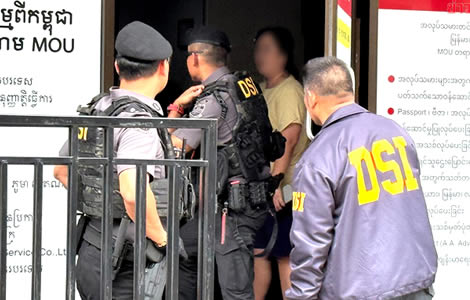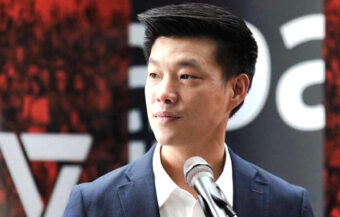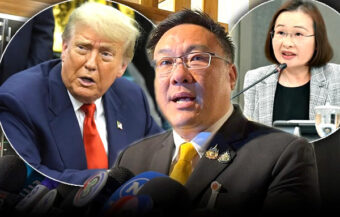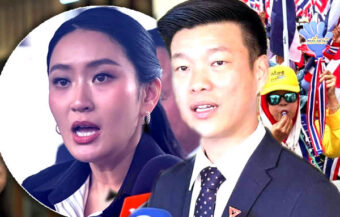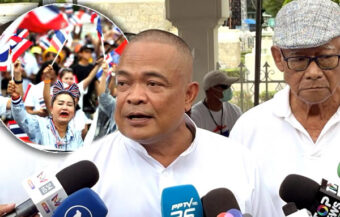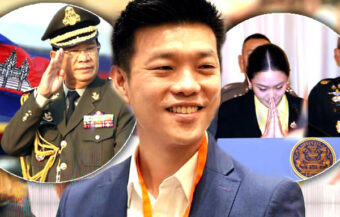The 29th Thai Prime Minister now moves on to form his second government which will face a very different political environment to the last one formed from the 2014 coup. The 7 party opposition alliance yesterday held together and the government had a very slim advantage in the lower house. With challenging times ahead economically, an active opposition, and a very unwieldy 20 party coalition, it will take all the canny Prime Minister’s skills to keep the show on the road in the months and years ahead. Yesterday’s result shows it can be done and we wish him well.
Thailand’s 29th Prime Minister has secured a second term in office, this time coming from the democratic process, as he was elected by a commanding majority by the Thai National Assembly combining the upper and lower houses of parliament. The vote of 500 to 244 also shows that the Prime Minister has the advantage in the lower house although it is razor thin. It may herald a difficult tenure in office as the unwieldy 20 party coalition goes head to head with what turned to be a coherent opposition alliance of 7 parties. The new Prime Minister must next turn his attention to forming his cabinet and publishing a policy statement for a new government to be formed. This will lead to the legal extinction of the military junta or National Council for Peace and Order after 5 years of rule.
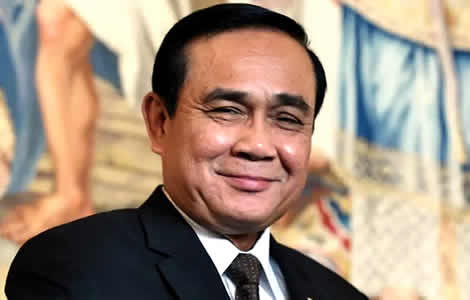
Current Thai Prime Minister, Prayut Chan ocha has been confirmed as the country’s next prime minister and will lead the first government to be formed under the 2017 Constitution. It came on Wednesday in a combined vote of Thailand’s National Assembly comprising of its upper house or Senate and the lower house, the House of Representatives.
Opposition put forward firebrand young leader Thanathorn Juangroongruangkit as PM
The opposition bloc, comprising of seven parties in the House of Representatives, put forward the radical young leader of the Future Forward Party, Thanathorn Juangroongruangkit, as their nominee for Prime Minister but he was defeated in the vote by 500 votes to 244. Mr Juangroongruangkit is also currently suspended from his duties as MP because of a Constitutional Court decision two weeks ago when it took up a case referred to it by the election commission which concerns Mr Juangroongruangkit’s continued shareholding in a media company in breach of Thailand’s electoral laws.
Prayut wins election as Thai Prime Minister after marathon 12 hour televised session
Prayut Chan ocha’s election as Prime Minister of Thailand by the Thai National Assembly occurred late on Wednesday night after over 12 of hours of extended parliamentary procedure. The assembly met at the TOT Auditorium on Chaeng Wattana Rod which is its temporary seat. The Thai National Assembly is expected to move to a new, modern parliamentary seat in Dusit, Bangkok at the end of the year. The vote on Wednesday was carried live on TV and watched across the nation by a very interested and involved Thai public.
New PM has command of the assembly but less so in the lower House of Represenatives
The final vote was not a surprise, but at 500 votes to 244, it clearly shows that while the new Prime Minister has a command of the National Assembly, he is less strong in the lower House of Representatives where 244 of the 500 MPs voted against him.
Shock resignation of former Prime Minister Abhisit Vejjajiva as MP in a principled stand
The surprise of the day was the public resignation of former Prime Minister and Democrat Party leader Abhisit Vejjajiva both from the party he had formerly led and from his seat as a party list MP. It was mark of honor from the man who has consistently vowed not to support the current Prime Minister during the election in which he led the Democrat Party to a disastrous defeat. Mr Vejjajiva had vowed on the campaign trail to oppose the current government which is, in many respects, closely associated the government installed by the military junta in 2014.
New Thai government will be operating in a very different political environment
In other ways, it is not and this new incoming government will be operating in a very different environment. The newly elected Prime Minister now begins his second tenure as Prime Minister having being elected through the democratic process and the constitutional provisions of the 2017 charter whose special clauses, allowing a role for the combined national assembly on key votes will still apply for 5 years.
Next challenge for Prayut is the formation of a cabinet and new Thai government
The new Prime Minister now faces the challenge of forming a cabinet and publishing a government policy statement at which point, the military junta or the National Council for Peace and Order will cease to function. The political coalition that has brought Prayut Chan ocha back to power as Thailand’s 29th Prime Minister includes an unwieldy combination of 20 different political parties and the full support of the Upper House or Senate appointed by a military controlled committee.
A good day for the Thai opposition also
However, it could be argued that Wednesday was also good day for the opposition in parliament. Despite grumblings within the Pheu Thai Party, the largest party of the 7 party group of 244 MPs, the alliance came together to oppose the nomination of the new Prime Minister. The principled stand of Khunying Sudarat and the Pheu Thai leadership who promised not to seek power for themselves, looked well as the combined alliance supported the young political novice and Future Forward Party leader, Thanathorn Juangroongruangkit, as their candidate for Prime Minister. Thanathorn is fast becoming the bête noire of the government for his openly aggressive opposition style. The Future Forward Party leader, in the last week, during an interview with Bloomberg, has even suggested a return to street protests in Thailand.
Opposition nominee for Prime Minister in a clear warning to Thai authorities on Bloomberg
Mr Juangroongruangkit, the nominee of the 7 party alliance for for Prime Minister, made an impassioned plea on Wednesday to the Bhumjaithai and Democrat Parties to change course during the day. Despite his suspension from Parliament, the 40 year old has been positioned as the figurehead of the opposition alliance which now stands opposed to the government. In the interview with Bloomberg a week ago, the young leader had a warning for the Thai authorities now in power. ‘I’m prepared for the worst. I’m not going to flee,’ he said as he gave an interview from the high rise tower building in central Bangkok which is the headquarters of his family firm. ‘But if they have some sense, they’re not going to persecute me. People need change and no one can stop that.’
The MP himself has been suspended from parliamentary duties pending a Constitutional Court hearing into an alleged breach of the Thai electoral law over his shareholding in a media company.
Three abstentions in the vote for Prime Minister as incumbent remained at Government House
His vote and that of former Democrat Party leader Abhisit Vejjajiva, were therefore not counted. The other vote that was not cast was that of the President of the Assembly and House of Representatives Speaker, former Prime Minister Chuan Leekpai who remained neutral as part of his role. These votes and three abstentions explain the numbers.
During the extended process, the current Prime Minister remained at his post at Government House.
Former Democrat Party leader and PM explained his shock resignation in Parliament building
The shock of the day was certainly the high profile resignation of the Democratic Party leader. He gave a public statement within the confines of the TOT auditorium building. He reminded the public that he had solemnly pledged that has party would not support the current Prime Minister if elected. He pointed out that nearly 4 million people voted for the Democrat Party on this basis. ‘I could not attend the meeting and vote against the resolution of the party, I could not vote for General Prayut. That would mean I would break my promise with people. Today I have only one choice, to protect my dignity and that of my party, and keep my promise,’ he explained.
Abhisit Vejjajiva found himself at odds with his own party this week after support for Prayut
The Democrat Party leader and former Prime Minister explained his opposition to his party’s support for Prime Minister Prayut Chan ocha. He said that he had tried, in vain, to prevent his party adopting the course of action it decided upon in supporting the current Prime Minister for a second term. He revealed that it had been suggested that he should abstain on the vote on Wednesday but he felt that would not be sufficient. ‘Throughout my political career, I have adhered to ideals and principles. This is not abstract. It is because I believe that only the politics based on ideals and principles can create happiness and benefits for the people and the nation in the long run. Therefore, effective immediately, I resign as MP.’
Former Democrat party leader had advocated third course for his party away for polarisation
Mr Abhisit outlined what he thought should have been the approach adopted by the party he lead in to the March 24th election but which emerged as the biggest loser. He said he had wanted the party to become a third force or neutral observer in parliament opposing the excesses of government. He revealed that he thought the spectre of Thaksin Shinawatra still pervades a polarised Thai political system. ‘I am sorry for these circumstances, where people have been forced to take sides based on strong emotions, hating dictatorship or fearing Thaksin,’ he said.
Abhist and Prayut both recommend ‘Animal Farm’ novel by George Orwell to the public
The former Prime Minister ironically was in agreement with the new Prime Minister on one point. As the new Prime Minister advised the Thai public this week, Abhisit also believes that people in Thailand should read the British writer George Orwell’s classic novel ‘Animal Farm’ to understand the dynamics and dangers of political power.
Future Forward Secretary General lodges complaint to President of the National Assembly
In a move designed to highlight the nature of the current law on media shareholdings for politicians, the Secretary General of the Future Forward Party and co founder Piyabutr Saengkanokkul, this week lodged a petition to the President of the new Thai National Assembly, Chuan Leekpai complaining about up to 30 sitting MPs, many linked with the now ruling Palang Pracharat Party. The complaint relates to alleged shareholdings held by the MPs in media companies. It requests that the matter be referred to the Constitutional Court.
This stems from a problem with a strict interpretation of the law which must soon be resolved in the Thai courts. Many companies formed by legal practitioners in Thailand allow in the company’s Memorandum and Articles of Association for the company to be involved running a media enterprise which is a very broad definition in today’s business world where all companies and individuals engage in media activities.
2008 Prime Minister Samak Sundaravej removed over cookery show by Thailand’s top court
In the recent past, a Thai Prime Minister was removed by the court on the grounds of media involvement. In 2008, Samak Sundaravej was removed as Prime Minister by the Constitutional Court because of his participation in a cookery show.
Calls to look at and reform Thai prohibitions on media ownership bans for politicians
It has led to some calls for the law in this area to be made more practical and there are also some in Thailand who question the need for such strict restrictions. However, others also strongly disagree. Since the introduction of the 2017 Constitution and the strengthening of the role of Thailand’s election commission, the personal behavior and affairs of all public representatives is now subject to heightened scrutiny in Thailand. This was of one of the key aims of the new charter designed to ensure that only public representatives of the highest caliber are engaged in public affairs.
New government has a razor slim advantage in the House of Representatives
The new government now has the slimmest majority possible in the lower house after the Democrat Party on Tuesday left it to the last minute to approve the party’s support for a Palang Pracharat coalition. The vote was 61 to 16. Two of the party members abstained. Some of those within the Democratic Party cohort of MPs were reported to be uncomfortable about voting in as Prime Minister the man who led the 2014 coup. The resignation of the former party leader on Wednesday highlights the issue.
Democrat Party to get three minsters and four deputy ministers in new government
However, it is reported that the hard negotiating tactics of the party leadership has paid off with the party expected to have a Deputy Prime Minister, three cabinet ministers and four deputy ministers in the new government. The ministries likely to be occupied by Democrat Party MPs are agriculture, commerce and social development.
Pheu Thai’s goal is to unite the opposition
Pheu Thai is focusing its political energies and capital on solidifying an opposition block to the new government. This may prove strategically the right thing to do as the new Thai government is facing into a period of economic uncertainty and challenges in 2019.
Grumblings in Pheu Thai ranks this week
However, the party’s strategy has been the cause of some concerns among the party’s grass root members particularly in northern Thailand where the party is running in direct competition with the Future Forward Party which is more radical than Pheu Thai and may steal away its support as opposition to the government intensifies. Many of the party’s supporters would like to see Khunying Sudarat Keyuraphan to the fore. The public face of the party is also not even a member of the new parliament but is directing its political strategy.
Priority now is to build an effective opposition
The former minister has emerged as the de facto leader of Pheu Thai to many Thai people. She is extremely popular. Khunying Sudarat has indicated that the priority of the party must be to build an effective opposition to the new government which holds a very tenuous control over Thailand’s new House of Representatives.
Thailand’s largest party keeping its word to the electorate not to simply chase political office
The Secretary-General of Pheu Thai Party, Phumtham Wechayachai, explained this week that the party was keeping to its word in not seeking political office but prioritising opposition to the military junta so as to remove it from Thai politics. In the coming weeks, as the new Thai government and cabinet is confirmed, the National Council for Peace and Order will cease to function but it is clear that the opposition is determined to label the new government as the old regime under a new guise.
Pheu Thai boss criticises current constitution
The Pheu Thai secretary general was critical of the new constitutional arrangements and suggested that it will lead to an ineffective system of government. He suggests that such an outcome was not in Thailand’s long term national interest.
Rumors of approaches to opposition MPs to act as ‘cobras’ during he week tensions mounted
Another Pheu Thai figure, this week, suggested that the key objective now for the leading opposition party would be to keep the 246 MPs in the 7 party alliance united against the government. There had been a number of media reports his week of approaches from unnamed sources to Future Forward Party MPs offering inducements to switch or become ‘cobras’ in future votes. During recent votes, a number of opposition MPs, in fact, did vote with the government. However on Wednesday, the 244 tally against the nomination of Prayut Chan Ocha shows that there is coherence and discipline in the 7 party opposition coalition. It was a good start.
New start of Thailand’s 29th Prime Minister as Thailand faces choppy economic waters ahead
During Wednesday’s vote, it was reported that Thanathorn Juangroongruangkit was on standby as the vote took place in case he would be required to pitch his case to the assembly if a proposal that all prospective prime ministerial candidates should speak to the body before the vote, was successful. It was, of course, defeated. It was never going to happen. Earlier this week, the current Premier dismissed such an notion saying that he had spoken enough over the past five years. Prime Minister Prayut now begins his second term with a credible democratic mandate but this time, he is facing an active opposition and perhaps more choppy economic waters.

